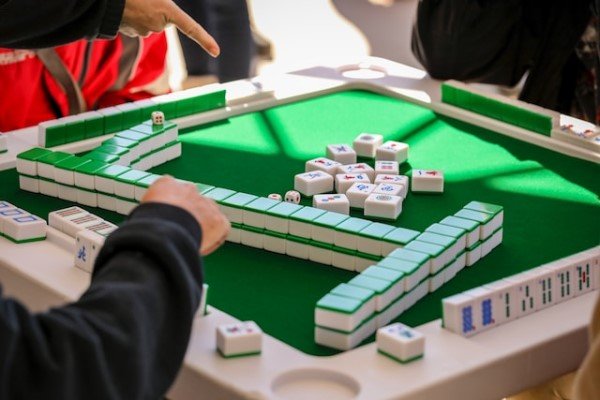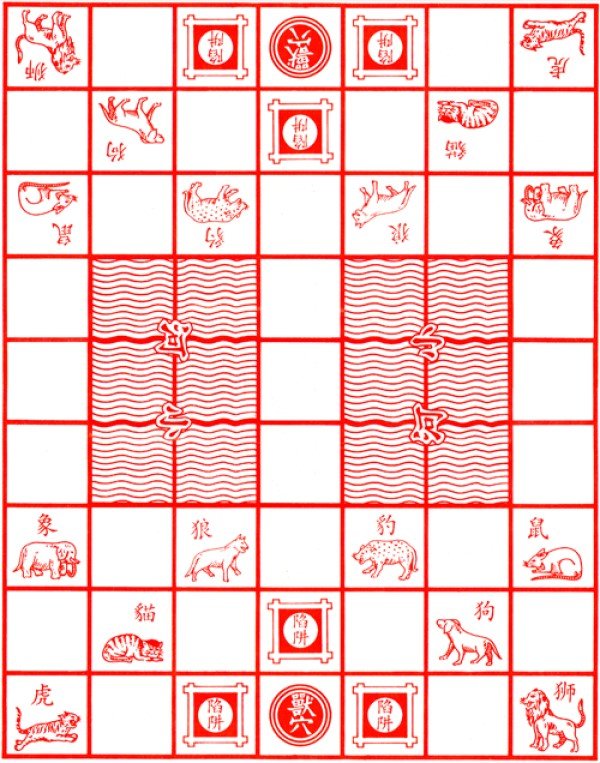Exploring the World of Chinese Board Games: Top 5 Classics
If you're a board game enthusiast, you might have dabbled in various classic games from around the world. But have you ever delved into the rich and diverse world of Chinese board games? In this blog post, we'll introduce you to the top 5 Chinese board games, including Mahjong, Animal Chess (Jungle Chess), Go, Fighting the Landlords (Dou DiZhu), and Xiangqi. Each of these games offers a unique experience and carries significant cultural value.
People playing traditional Chinese board games(Photo by Joey Huang on Unsplash)
1. Mahjong: A Timeless Classic
Mahjong is perhaps the most iconic Chinese table game, known worldwide for its distinct tiles and strategic gameplay. Played with four players, Mahjong is a game of skill, strategy, and a touch of luck. The primary goal is to complete a winning hand by collecting sets of tiles. This game has been a cornerstone of Chinese culture for centuries, making it a must-try for any board game enthusiast.
Mahjong's origins can be traced back to China in the late 19th century. Its name, which means "sparrow," is a nod to the bird tiles found in the game. Mahjong quickly gained popularity in China and eventually made its way to the Western world, captivating the hearts of many players.
MahJong(Photo by Mick Haupt on Unsplash)
Mahjong is played with a set of 144 tiles featuring various Chinese characters and symbols. The objective is to form sets or combinations of these tiles. Players must employ strategy and memory to draw and discard tiles, all while keeping an eye on their opponents' moves. The combination possibilities are vast, making each game unique and challenging.
Throughout its history, Mahjong has evolved into various regional and international rule sets. Some of the popular variations include Chinese Classical Mahjong, Japanese Riichi Mahjong, and American Mahjong, each with its own unique rules and scoring systems.
2. Animal Chess (Jungle Chess): A Battle of Beasts
Also known as Jungle Chess, this china board game pits two players against each other in a battle of animals. It's a tactical game where each piece has unique abilities and movements. Animal Chess is not only fun but also a great way to test your strategic thinking.
Animal Chess, or Xiangqi, is inspired by the ancient Chinese game of Chaturanga, which also influenced the development of international chess. It features animals as pieces, each with distinct movements and roles on the board.
The game board represents a battlefield, and pieces like the elephant, tiger, and lion have specific movements and abilities. The objective is to capture your opponent's den (similar to the king in international chess) while protecting your own.
A picture of the board of Animal Chess
Animal Chess is known for its strategic depth, with players employing various tactics to outwit their opponents. The game's quick pace and compelling strategy make it a favorite among enthusiasts.
3. Go: The Game of Infinite Possibilities
Go, also called Weiqi in Chinese, is one of the oldest board games in the world, with a history spanning over 2,500 years. It's a two-player traditional Chinese board game that involves black and white stones placed on a gridded board. The strategic depth of Go is unparalleled, and it continues to be a significant part of Chinese culture.
Go's history can be traced back to ancient China, where it was considered one of the essential arts of a cultured person. The game was later adopted and refined in Japan and Korea. Its complex strategy and simplicity of components make it an enduring classic.
Go (Photo by Elena Popova on Unsplash)
In Go, two players take turns placing black and white stones on the board, with the goal of surrounding territory and capturing the opponent's stones. The rules are simple, but the game's depth lies in its strategic possibilities, with professional players dedicating their lives to mastering it.
While Go originated in China, it has a global following. The depth of the game has led to international tournaments and a dedicated community of players. In China, it is known as Weiqi, and in Japan, it is called Baduk.
4. Fighting the Landlords (Dou DiZhu): A Battle of Cards
Dou DiZhu is a popular card game in China that's easy to learn but hard to master. Played with a standard deck of cards, it's a competitive game where players aim to get rid of their cards by forming specific card combinations. It's a great choice for a lively game night with friends.
Dou DiZhu has its origins in Chinese card games and is believed to have developed in Sichuan province in the late 20th century. The game's simplicity and entertainment value have contributed to its widespread popularity.
A picture of people playing cards(Photo by Pontus Wellgraf on Unsplash)
The game is typically played by three players, and it involves a hierarchy of card combinations. The "landlord" plays against the other two players, who form an alliance. The landlord's goal is to get rid of their cards before the other players, and the game combines elements of strategy and deception.
Dou DiZhu is not just a card game; it's a social activity that often includes banter and camaraderie. The element of strategy and unpredictability makes it a favorite pastime during gatherings and social events in China.
5. Xiangqi: The Chinese Chess
Xiangqi, also known as Chinese Chess, holds a special place in the hearts of Chinese board game enthusiasts. This game shares similarities with international chess but comes with unique pieces and rules. With millions of dedicated players in China, Xiangqi is more than just an ancient Chinese board game; it's a cultural phenomenon. The intricate strategies and historical context make Xiangqi a fascinating experience for players of all levels.
A picture of people playing Xiangqi (Photo by Damian Patkowski on Unsplash)
Why Xiangqi is Outstanding
Xiangqi has a profound importance in Chinese culture, reflecting the art of war and philosophy. It's not just a game but a testament to Chinese history and strategic thinking. Here are some reasons why you should give Xiangqi a try:
Cultural Significance: Xiangqi has deep historical roots, and its pieces represent Chinese military forces. Playing it is like stepping into the shoes of a general on a battlefield.
Strategic Depth: Xiangqi offers endless opportunities for strategic thinking. Each move must be well-calculated, making it a mentally stimulating game.
Community and Tradition: Joining the world of Xiangqi means becoming part of a vibrant and passionate community. It's a game played in parks, homes, and clubs across China, fostering a sense of tradition and camaraderie.
Ease of Access: Xiangqi is accessible to beginners, with simple rules, but it offers incredible complexity for advanced players, making it suitable for all skill levels.
So, why not embrace this ancient game and experience the thrill of Xiangqi? Whether you're a seasoned board gamer or a beginner, Xiangqi is a game that's bound to captivate your mind and keep you coming back for more.
In conclusion, Chinese board games offer a unique blend of strategy, culture, and history. From the timeless Mahjong to the strategic Xiangqi, each game has its charm and significance. Explore these classics and immerse yourself in the rich world of Chinese board gaming.







